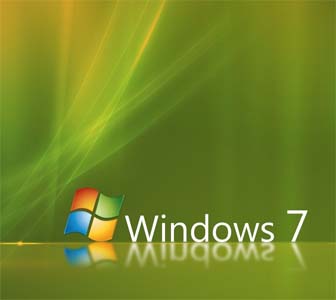The computer helper: 32-bit or 64-bit Windows 7?
 Washington - As soon as you decide to upgrade to Windows 7, you have another decision to make: should you upgrade to the 32-bit edition or the 64-bit edition? While Microsoft has made the transition to 64-bit computing as seamless as possible for most, there are still some very important questions that need to be answered before you make the commitment to a 64-bit operating system. Here are a few.
Washington - As soon as you decide to upgrade to Windows 7, you have another decision to make: should you upgrade to the 32-bit edition or the 64-bit edition? While Microsoft has made the transition to 64-bit computing as seamless as possible for most, there are still some very important questions that need to be answered before you make the commitment to a 64-bit operating system. Here are a few.
Q: What's are the advantages of the 64-bit version of Windows 7?
The most frequently-cited advantage is that your operating system will have access to more than 4 gigabytes (GB) of memory (RAM). That's a big deal for some. More available memory means being able to run more applications at the same time or being able to give memory-hungry applications more room in which to work. The result could be increased productivity, better overall system performance, and fewer memory-related glitches. Of course, to get these advantages, you'll have to outfit your computer with more than 4 GB of RAM, which will increase overall system costs.
Those who have made the move successfully to 64-bit Windows 7 generally report few glitches other than having to overcome a minor learning curve. For instance, on 64-bit Windows 7 you'll find two "program files" folders on your C drive: one is called "Program Files" and the other is named "Program Files (x86)." The latter is used to store 32-bit applications. You'll probably find most of your programs installed into that folder, since most applications are still 32-bit. The other Program Files folder is reserved for 64-bit applications. At installation, you will not have to choose which Program Files folder receives the installation files. The operating system does this for you automatically.
Q: What are the disadvantages of 64-bit Windows 7?
A: There are two potential disadvantages: driver support and program availability. Although 64-bit operating systems have been out for some time now, the fact is that a surprising number of manufacturers still do not offer 64-bit versions of their drivers. While it is sometimes possible to use 64-bit drivers written for older versions of Windows in Windows 7, that's not always the case. And even when it is, you won't get support from device makers if you're using their drivers on an unsupported version of Windows.
If you're thinking about going the 64-bit route with Windows 7, make a list of all of the peripherals you rely upon - scanner, printer, Webcam, camera - and make sure that the manufacturers of these products provide 64-bit Windows 7 drivers on their Web sites. Download the drivers and have them ready when you install the new operating system.
In addition to driver issues, you may have older applications that will simply not run - or not run properly - on a 64-bit operating system. Some applications written for the 32-bit versions of Windows may also actually run slower on the 64-bit version of Windows 7 because of the additional overhead required to run 32-bit applications on a 64-bit operating system.
Q: Can 32-bit applications access more than 4 GB of memory on the 64-bit edition of Windows 7?
A: Typically, no. Most 32-bit applications have a memory address limit of 2 GB. There are selected 32-bit applications that are "large address aware," meaning that they can access more than 2 GB of RAM if run on a 64-bit operating system.
So to get access to all of the memory available on a 64-bit operating system at the application level, you'll really need to be running a 64-bit application. Unfortunately, it's still predominantly a 32-bit world. Slowly but surely, however, vendors are releasing 64-bit versions of their applications. But if you adopt the 64-bit version of Windows 7, you'll still be a bit ahead of the software development curve.
The 64-bit edition of Windows 7, stocked with enough memory, will allow you to run more memory-hungry 32-bit applications simultaneously without excessive disk paging, however. This benefit alone may make the move to 64-bit worthwhile for some.
Q: How do I know if my computer will support the 64-bit version of Windows 7?
A: If you have a dual-core processor better, your PC will run the 64-bit edition of Windows 7.
To be sure, however, you can download and run GRC's SecurAble processor testing application (http://www.grc.com/securable.htm). This small program will tell you in an instant whether your processor is up to the task of running Windows 7 64-bit or any other 64-bit operating system.
Q: Do I have to purchase the 64-bit edition of Windows 7 separately?
A: No, not if you're dealing with the standard retail packages of Windows 7. Both versions of Windows 7 come in the same package.
Q: Can I start out with the 32-bit edition of Windows 7 and upgrade later to the 64-bit edition?
A: Unfortunately, no. You cannot do an in-place upgrade of the 32-bit edition of Windows 7. You will have to reinstall the operating system using the 64-bit disk in order to upgrade.
Q: If both the 32-bit and 64-bit editions of Windows 7 come in the same package, can I install Windows 7 on two machines?
A: No. While you do get both the 32-bit and 64-bit versions of Windows 7 in the same package, you only receive one license key, which will work with either edition but cannot be used twice. (dpa)